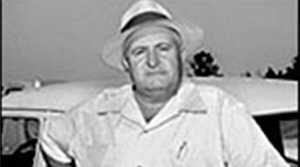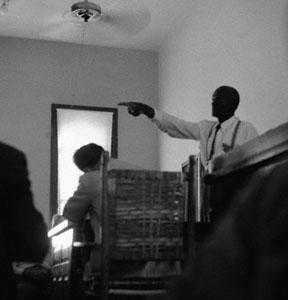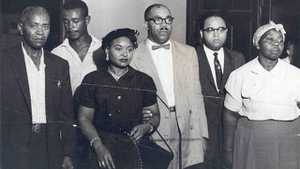The Trial of J.W. Milam and Roy Bryant
The murder trial of Roy Bryant and his half-brother J.W. Milam laid bare the racism that ruled Mississippi.
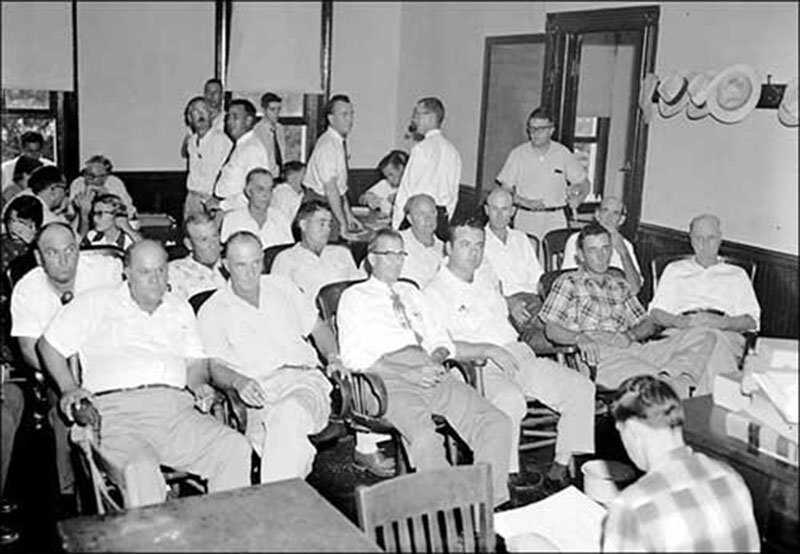
When the murder trial of Roy Bryant and his half-brother J.W. Milam opened in Sumner, Mississippi, on a steamy September morning in 1955, few realized the town would be forever linked to the brutal slaying of Emmett Till, a 14-year-old African American boy from Chicago.
Sumner, the Tallahatchie County seat, was in the heart of the Mississippi Delta. The town's slogan was emblazoned on a prominent sign that read, "A good place to raise a boy," an irony not lost on the scores of national white and black reporters covering the case. Photos of the sign accompanied news stories about the murder of a boy who did not live to be a man.
Many whites from the area resented the influx of Northerners in town to cover the trial and filled the courtroom in support of the defendants. Every lawyer in the county donated their services and $10,000 was collected from local businessmen in support of the defense.
Presiding over the scene was Tallahatchie County Sheriff Clarence Strider. "Sheriff Strider was a big, fat, plain-talking, obscene-talking sheriff you would expect to find in the South," said journalist John Herbers, who covered the trial for United Press Associated. "His actions at the trial were not, I think, to seek justice, but to be sure that his courtroom was totally segregated."
Black spectators sat in the back of the courtroom, and black reporters were relegated to a card table off to the side.
When the black Detroit Congressman Charles Diggs arrived to watch the proceedings, Strider at first refused him entry until the presiding judge told him he had to let in a U.S. Congressman. In turn, Strider relegated Diggs to the black press table. Every morning, Strider would pass the group with a cheery, "Hello, niggers."
Racist jokes made the rounds: "Wasn't it just like a nigger, to try and cross the Tallahatchie River with a gin fan around his neck."
The local Jackson Clarion-Ledger ran a story with the headline: "Sumner Folk Already Plenty Bored With All This Ruckus."
The most dramatic testimony came from some unlikely heroes, two sharecroppers who were threatened with death if they testified. Moses Wright, Emmett's great uncle, was the prosecution's best eyewitness. He stood up in court and pointed out Milam and Bryant as the men who came to his home and took Emmett at gunpoint.
Willie Reed, an 18-year-old sharecropper, testified that he heard beatings and screaming coming from the Milam family shed. He also said J. W. Milam had come out of the shed, donning a .45 pistol on his hip, and asked Reed whether he had heard anything. Reed told him no.
Emmett's mother, testified that the body pulled from the Tallahatchie River was indeed her son, and wept when attorneys showed her photographs of his brutally beaten body.
Carolyn Bryant testified outside the presence of the jury and said Emmett walked into the store spoke with her and then grabbed her. Then, she said, he whistled.
Milam and Bryant never took the stand.
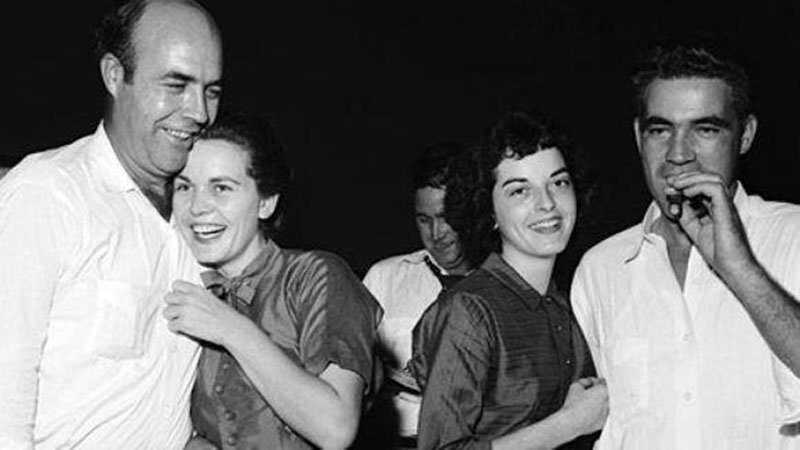
For his closing summation, defense attorney Sidney Carlton told the all-white, all-male jury that if they didn't free Milam and Bryant: "Your ancestors will turn over in their grave, and I'm sure every last Anglo-Saxon one of you has the courage to free these men."
After deliberating for only 67 minutes, the jury returned a verdict: not guilty. Reporters said they overheard laughing inside the jury room. One juror later said: "We wouldn't have taken so long if we hadn't stopped to drink pop."
When the verdict was read, Milam and Bryant lit up cigars and kissed their wives in celebration before reporters.




